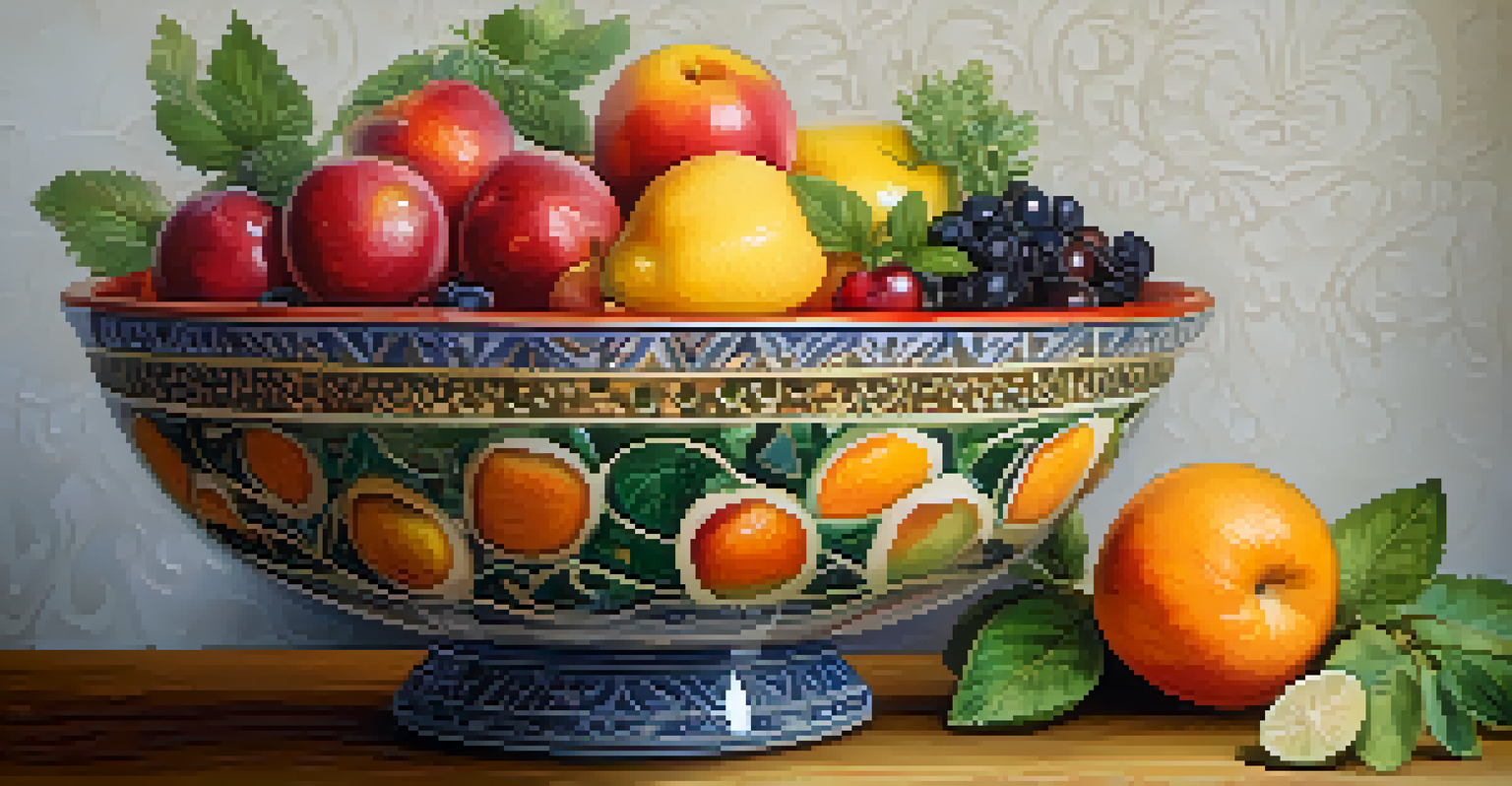Cultural Perspectives on Entheogens and Mental Health

Understanding Entheogens: A Brief Overview
Entheogens are substances, often derived from plants, that are used in spiritual or religious contexts. These substances, such as psilocybin mushrooms and ayahuasca, are known to induce altered states of consciousness, often leading to profound personal insights. While the term might sound unfamiliar, it essentially combines 'entheos,' meaning 'divine inspiration,' and 'gen,' meaning 'to generate.' Understanding these substances requires appreciating their historical and cultural significance.
The greatest discovery of my generation is that a human being can alter his life by altering his attitude.
Many indigenous cultures have used entheogens for centuries as part of healing rituals and spiritual ceremonies. For example, the Mazatec people of Mexico use psilocybin mushrooms to connect with the divine and heal emotional wounds. These practices highlight the deep-rooted belief that mental health and spirituality are intricately linked. As more people become interested in the therapeutic potential of these substances, it's essential to recognize their cultural roots.
In modern discussions about mental health, entheogens are often framed as tools for healing psychological issues. However, it's crucial to approach this topic with respect for the traditions that cultivated these practices. By understanding the cultural perspectives surrounding entheogens, we can engage in a more meaningful dialogue about their potential benefits and risks in mental health treatment.
Cultural Use of Entheogens: A Global Perspective
The use of entheogens varies significantly across cultures, each with its own unique practices and beliefs. For example, the Amazonian tribes utilize ayahuasca in ceremonial settings to facilitate healing and community bonding. In contrast, the Native American Church incorporates peyote into their spiritual practices, emphasizing connection with the Creator and introspection. These diverse cultural practices illustrate the varied roles entheogens play in different societies.

In some cultures, entheogens are seen as sacred gifts from nature, while in others, they may be viewed with skepticism or fear. For instance, the Western world has historically categorized these substances as illegal drugs, often overlooking their cultural significance. This dichotomy raises important questions about how society perceives mental health and the role of traditional practices in addressing it.
Cultural Roots of Entheogens Matter
Entheogens have deep historical and cultural significance, which is essential to understand for respectful and effective use in modern mental health treatment.
As interest in mental health continues to grow, many are looking to these cultural perspectives for guidance. The resurgence of research on entheogens and psychotherapy highlights the need to respect and understand their cultural contexts. By doing so, we open the door to integrating these practices into modern mental health treatment in a respectful and informed manner.
The Intersection of Spirituality and Mental Health
Spirituality often plays a vital role in mental health, and entheogens can serve as a bridge between the two. Many people report profound spiritual experiences during entheogen use, leading to enhanced mental well-being. These experiences can foster a sense of interconnectedness and purpose, which are vital components of mental health. By exploring this intersection, we can deepen our understanding of holistic approaches to mental wellness.
Nature itself is the best physician.
In various cultures, mental health issues are not just viewed through a medical lens but also through a spiritual one. For instance, many indigenous healing practices involve rituals that incorporate entheogens to address emotional and psychological distress. These spiritual aspects highlight the importance of considering the whole person—mind, body, and spirit—in mental health treatment.
Research suggests that entheogens may help individuals confront past traumas and emotional blockages, leading to healing and resolution. This therapeutic potential aligns with the beliefs held by many cultures that view mental health as a journey toward spiritual enlightenment. By acknowledging this connection, we can create more comprehensive mental health strategies that embrace both scientific and spiritual perspectives.
Modern Science: Research on Entheogens and Therapy
Recent scientific studies have reignited interest in the therapeutic potential of entheogens, particularly in treating mental health disorders. Research has shown that substances like psilocybin can help alleviate symptoms of depression, anxiety, and PTSD. These findings are significant, as they challenge the conventional wisdom surrounding mental health treatment and open up new avenues for exploration in therapy.
One of the most exciting aspects of this research is the emphasis on the 'set and setting'—the mindset of the individual and the environment in which the substance is taken. This approach aligns with many traditional practices that stress the importance of context in entheogen use. By creating supportive environments for therapy, practitioners can enhance the positive outcomes of entheogenic experiences.
Entheogens Show Therapy Potential
Recent research indicates that substances like psilocybin may effectively alleviate symptoms of mental health disorders, challenging traditional treatment methods.
While modern science provides valuable insights, it is essential to approach this research with caution and respect for cultural practices. Understanding the historical and cultural contexts of entheogen use can inform ethical guidelines for their application in therapy. As we move forward, a collaborative approach between science and traditional wisdom could pave the way for innovative mental health treatments.
The Risks and Challenges of Entheogen Use
While the potential benefits of entheogens are promising, it's important to acknowledge the risks and challenges associated with their use. Not everyone will have a positive experience, and some individuals may face adverse psychological effects. Additionally, the legal status of these substances can complicate access to safe and responsible use, making it critical to approach entheogens with caution.
Cultural appropriation is another concern when discussing entheogen use outside of its traditional contexts. When individuals from different backgrounds adopt these practices without understanding their significance, it can lead to disrespect and dilution of cultural heritage. This highlights the importance of educating oneself about the cultural roots of entheogens before engaging with them.
To mitigate risks, individuals considering the use of entheogens for mental health should seek guidance from trained professionals who respect these cultural practices. By prioritizing safety, education, and cultural sensitivity, we can foster a more responsible approach to entheogen use in mental health settings.
Personal Stories: Transformative Experiences with Entheogens
Personal stories can offer powerful insights into the transformative potential of entheogens. Many individuals have shared their journeys of healing and self-discovery through entheogenic experiences. These narratives often highlight how such experiences can lead to shifts in perspective, emotional breakthroughs, and a deeper understanding of oneself and the world around them.
For example, someone struggling with anxiety might find relief and clarity during a guided psilocybin session, leading to a more profound sense of peace and acceptance. These anecdotes not only emphasize the therapeutic potential of entheogens but also underscore the importance of integrating personal experiences into broader discussions about mental health.
Risks Require Cautious Approach
While entheogens offer therapeutic benefits, their use comes with risks and challenges that necessitate careful consideration and cultural sensitivity.
While personal stories are compelling, they should complement, rather than replace, scientific research and cultural understanding. Each individual's journey is unique, and the impact of entheogens can vary widely. By listening to these stories, we can foster empathy and awareness, ultimately enriching our understanding of entheogens and their role in mental health.
Future Directions: Integrating Entheogens into Mental Health Care
As interest in entheogens continues to grow, there is an increasing demand for their integration into mental health care. This could involve developing new therapies that incorporate entheogenic substances alongside traditional treatment methods. By fostering collaboration between mental health professionals and those knowledgeable about entheogenic practices, we can create innovative approaches to therapy.
Education and training will be crucial in this transition. Mental health practitioners must be equipped with the knowledge and skills to responsibly guide individuals through entheogenic experiences. This includes understanding the cultural implications and ensuring that practices are ethical and respectful.

Looking ahead, the integration of entheogens into mental health care could lead to a more holistic and inclusive approach to mental wellness. By embracing the wisdom of diverse cultures and the insights of modern science, we can expand our understanding of mental health and promote well-being in a more comprehensive way.